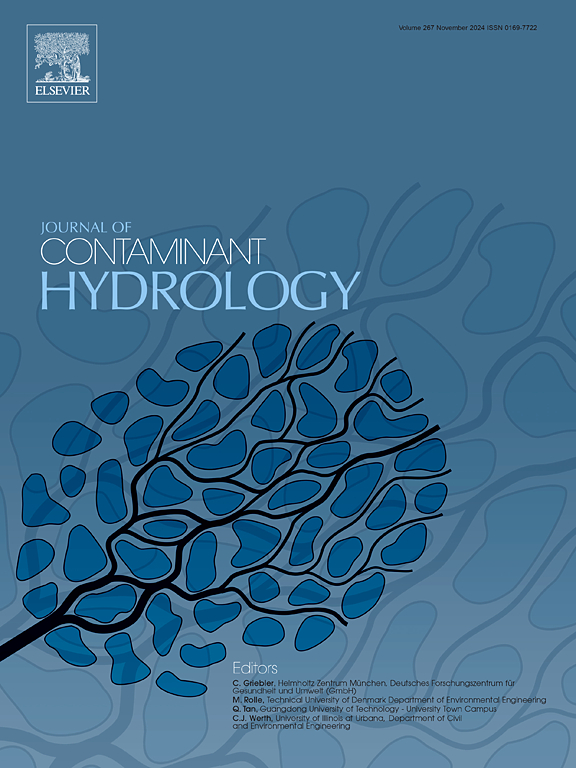Reactive transport modelling as a toolbox to compare remediation strategies for aquifers impacted by uranium in situ recovery
Abstract
More than 60% of worldwide uranium production is based on the In Situ Recovery mining technique. This exploitation method directly falls within the scope of the applications of reactive transport modelling to optimize uranium production and limit its associated environmental impact. We propose a modelling approach which is able to represent the natural evolution of an aquifer impacted by an ISR test performed using sulfuric acid. The model is calibrated on a 12 year-long data series obtained from 12 monitoring wells surrounding an ISR pilot cell. Through this process-based approach, we simulate the impact of several remediation strategies that can be considered in these contexts. In particular, we model the impact of Pump & Treat combined with reverse osmosis, as well as the circulation of non-impacted fluids through the reservoir with different operating strategies. Our approach allows to compare the effectiveness of these strategies. For this small-scale ISR pilot, monitored natural attenuation constitutes an interesting approach due to its faster pH recovery time with respect to Pump & Treat (5–10 years to pH 6), whose efficiency can be improved by the addition of exchangeable cations. Circulation of unimpacted fluids can reduce pH recovery times if performed for periods longer than the ISR exploitation and/or deployed with a delay. Combined with an economic evaluation of their deployment, this modelling approach can help the mining operator select and design optimal remediation strategies from an environmental and economical standpoint.


 求助内容:
求助内容: 应助结果提醒方式:
应助结果提醒方式:


